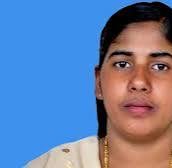Who is Nimisha Priya in Yemen?
This report details who Nimisha Priya is, the circumstances that led to the crime, the subsequent legal proceedings by the Yemeni authorities, and the current status of her case.
NEWSFOREIGN AFFAIRSMIDDLE EASTDEATH
7/18/20255 min read


Indian Nurse Nimisha Priya on Death Row in Yemen.
Nimisha Priya, an Indian nurse from Kerala, is currently on death row in Yemen after being convicted of the 2017 murder of a Yemeni national, Talal Abdo Mahdi. Her case has garnered significant attention in India, with ongoing efforts by the Indian government, various organizations, and her family to save her from execution. This report details who Nimisha Priya is, the circumstances that led to the crime, the subsequent legal proceedings by the Yemeni authorities, and the current status of her case.
Background and Early Life
Nimisha Priya is a 36-year-old Indian nurse from Kollengode, Palakkad district, Kerala, who has been on death row in Yemen since 2018. Born on January 1, 1989, she grew up in a humble family with parents who worked as daily wage laborers and was financially supported by a local church to complete her nursing education. Despite her educational achievements, she was unable to work as a nurse in Kerala because she had not cleared her school-leaving exams before beginning her nursing studies.
Journey to Yemen and Initial Years
In 2008, Nimisha moved to Yemen seeking better employment opportunities to support her family. She initially worked as a nurse at a government-run hospital in Sanaa, Yemen's capital. In 2011, she returned to Kerala to marry Tomy Thomas, a driver working in Qatar. The couple returned to Yemen together, where their daughter was born shortly after.
The Business Partnership That Turned Tragic
Setting Up the Clinic
In 2014, as Yemen's civil war intensified and financial pressures mounted, Nimisha's husband returned to India with their infant daughter to raise funds while she remained in Yemen. Determined to achieve financial independence, she left her hospital job with the hope of starting her clinic.
Under Yemeni law, foreign nationals are required to have a local business partner to establish a business. Nimisha partnered with Talal Abdo Mahdi, a 37-year-old local businessman who owned a textile shop, to open the Al Aman Medical Clinic in early 2015. The 14-bed facility was financed with money she and her husband had borrowed.
The Deteriorating Relationship
According to Nimisha's account, what began as a professional partnership soon turned abusive. She alleged that Mahdi:
Stole funds from the clinic
Physically and sexually assaulted.
Threatened her repeatedly
Confiscated her passport and travel documents
Forged documents claiming to be her husband
Prevented her from communicating with her family in India
Despite reporting his behavior to police in 2016, authorities did not intervene to help her. The situation left her effectively trapped in Yemen, unable to leave the country or contact her family.
The Fatal Incident
The Desperate Escape Attempt
In July 2017, in a desperate attempt to escape her situation, Nimisha sought advice from a prison warden who had previously dealt with Mahdi (who had served time for various offenses). The warden allegedly advised her to sedate Mahdi to retrieve her passport.
The Overdose and Death
With the help of a fellow nurse named Hannan, Nimisha injected Mahdi with ketamine sedatives. According to her account, she intended only to sedate him temporarily to recover her passport and other documents. However, the dose proved fatal, causing Mahdi to die from an overdose.
Cover-Up Attempt
Panicking after Mahdi's death, Nimisha and her accomplice dismembered his body and disposed of it in a water tank. Weeks later, when Mahdi's body was discovered, Nimisha was arrested near the Saudi-Yemeni border in August 2017 while attempting to flee the country.
Legal Proceedings and Conviction
The Trials
Nimisha was convicted of murder in March 2018. According to Indian Supreme Court lawyer K.R. Subhash Chandran, her trial was conducted entirely in Arabic, which she did not speak, and she was not provided with an interpreter or adequate legal representation. Her accomplice was also arrested and sentenced to life imprisonment.
In 2020, a trial court in Sanaa sentenced her to death. She was tried again in 2020 with an identical outcome. In November 2023, Yemen's Supreme Judicial Council rejected her appeal and upheld the death sentence.
The Yemeni Government's Course of Action
Legal Framework
The Yemeni judicial system operates under Sharia law, which provides two primary options for murder cases:
Qisas (retribution): "An eye for an eye" - in this case, death for death
Diya (blood money): Financial compensation to the victim's family in exchange for forgiveness
Official Approvals
In December 2024, Yemeni President Rashad al-Alimi approved Nimisha's death sentence. The execution was initially scheduled for January 2025, then rescheduled for July 16, 2025.
The Postponement
On July 15, 2025, just hours before the scheduled execution, Yemeni authorities postponed the execution indefinitely. This came after:
Sustained diplomatic pressure from the Indian government
Intervention by prominent Sunni Muslim leader Kanthapuram A.P. Aboobacker Musliyar (Grand Mufti of India)
Negotiations involving tribal elders, clerics, and religious figures
The Victim's Family's Position
Rejection of Blood Money
Talal Abdo Mahdi's family, particularly his brother Abdelfattah Mahdi, has consistently rejected all offers of blood money and demands for reconciliation. In a Facebook post following the execution postponement, Abdelfattah wrote:
"Our demand is clear: retribution (Qisas), and nothing else, no matter what. The pressures we've faced haven't changed us... A delay will not deter us, and pressure will not shake us — for blood cannot be bought".
Denial of Abuse Claims
The victim's family has vehemently denied Nimisha's allegations of abuse. Abdelfattah Mahdi told BBC Arabic that the family considers claims of abuse to be "fabrications by Indian media" and accused Indian outlets of "portraying a convicted murderer as a victim".
India's Diplomatic Efforts
Government Response
The Indian government has been assisting since the case began, though its options are limited due to:
Lack of formal diplomatic relations with the Houthi-controlled government in Sanaa
Yemen's ongoing civil war and political instability
The absence of an Indian embassy in Yemen (consular matters are handled through the Indian embassy in Djibouti)
Supreme Court Proceedings
On July 14, 2025, India's Attorney General R. Venkataramani told the Supreme Court that the government had reached its limits in what it could do diplomatically, stating: "There's a point till which the government of India can go. We have reached that".
Financial Arrangements
By July 2025, supporters had raised approximately $58,000 (₹58 lakhs) to offer as blood money to Mahdi's family. Initially, $40,000 was raised and transferred in two installments to lawyers handling the case. However, negotiations have stalled due to the family's refusal to accept any compensation.
Current Status and Ongoing Efforts
The Save Nimisha Priya International Action Council
A support group formed in 2020 has been working tirelessly to secure her release. The council includes:
Lawyers and activists
NRI social workers in Yemen
Prominent Indian businesspeople like M.A. Yusuf Ali (LuLu Group director)
Family's Presence in Yemen
Nimisha's mother, Prema Kumari, has been in Yemen since April 2024, camping in Sanaa to negotiate directly with Mahdi's family. She was able to meet her daughter in prison on April 24, 2024, for the first time in 11 years.
Ongoing Negotiations
Despite the family's public rejection of blood money, negotiations continue through:
Religious leaders and tribal elders
Sufi scholar Sheikh Habib Umar bin Hafiz
Samuel Jerome Bhaskaran, a negotiator based in Yemen
International Human Rights Concerns
Amnesty International has criticized Yemen's use of the death penalty, calling for:
An immediate moratorium on all executions
Commutation of all death sentences
Recognition that "the death penalty is the ultimate cruel, inhuman and degrading punishment"
The organization noted that Yemen was among the top five countries with the highest number of executions in 2024.
The Complex Legal and Cultural Landscape
Sharia Law Application
Under Yemen's Islamic judicial system, the victim's family holds significant power in determining the outcome. The family's insistence on qisas (retribution) rather than diya (blood money) reflects their belief that the murder was intentional rather than accidental.
Yemen's Civil War Context
The ongoing civil war since 2015 has complicated diplomatic efforts:
The Houthis control Sanaa, where Nimisha is imprisoned
India doesn't recognize the Houthi government
Administrative procedures are protracted, and officials may be inaccessible
Conclusion
Nimisha Priya's case represents a tragic confluence of personal desperation, legal complexity, and geopolitical challenges. While her execution has been postponed, her fate remains uncertain as negotiations continue between Indian officials, religious leaders, and the victim's family. The case highlights the vulnerabilities faced by migrant workers in conflict zones and the limitations of diplomatic intervention in complex legal systems governed by different cultural and religious principles.
The ongoing efforts to save her life demonstrate both the power of international advocacy and the challenges inherent in cross-cultural legal proceedings. As of July 2025, Nimisha remains in Sanaa Central Prison, with her supporters continuing to explore every possible avenue for her release or commutation of her death sentence.
